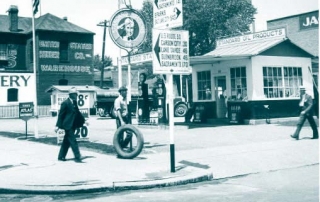If Cars Were More Efficient, Would We Use Less Fuel?
Kenneth A. Small and
Kurt Van Dender
Reducing US gasoline consumption might seem a straightforward task: just increase vehicle fuel efficiency, also known as miles per gallon (MPG). That, of course, is the principle behind the existing Corporate Average Fuel Economy (CAFE) standards.
But it’s not that simple. If MPG improves, the cost to drive a mile declines, so people drive more. Some critics have even argued that this “rebound” effect is so large that not much gasoline is saved, and other problems such as congestion are exacerbated. Is this right?

